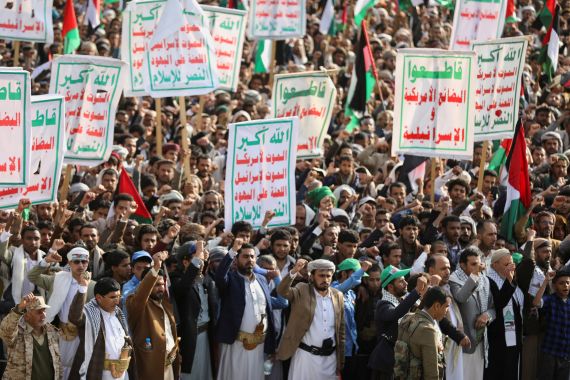Yemen’s Houthi rebels have fired ballistic missiles targeting various locations in Israel, with the latest strike aimed at the Red Sea city of Eilat. This offensive comes on the heels of a drone attack on Israeli targets within the last 24 hours, marking a dangerous intensification of conflict in the region.
Houthi Threats Manifested
The military spokesperson for the Houthi rebels confirmed the missile launches, revealing that the attack was a direct response to a previous military operation involving drones on Israeli targets. The group’s leader, Abdul-Malik al-Houthi, had earlier declared their intent to persist with assaults on Israel. This move underscores the Houthis’ determination to monitor and target Israeli vessels in the Red Sea, particularly in Bab al-Mandab and adjacent Yemeni waters.
Israeli Response and Intercepted Missile
Israeli authorities swiftly responded to the missile threat, disclosing that the Arrow aerial defense system successfully intercepted a missile near the Red Sea. Although the projectile did not breach Israeli territory, the incident has raised concerns about the Houthis’ increasing capabilities and the potential for more sophisticated attacks. The question of attribution remains unanswered as Israel refrains from explicitly naming the responsible party.
Despite the successful interception, the episode raises questions about the effectiveness of defense systems against evolving threats in the region.
Regional Escalation Amidst Gaza Conflict Fallout
The missile launches by the Houthi rebels add another layer of complexity to an already tense region, inflamed by the recent conflict in Gaza. Since Hamas’ attack on southern Israel on October 7, hostilities have surged, resulting in over 11,200 casualties in the Israeli assault on Gaza, as confirmed by Palestinian authorities. The repercussions extend beyond Gaza, with Hezbollah engaging Israeli forces across the Lebanon-Israel border, and Iran-backed groups targeting US forces in Syria and Iraq.
The conflict between the Houthis and Israel adds a volatile element to an already combustible region. As international organizations and political leaders sound alarms about the potential for a wider war, the situation demands a nuanced and diplomatic approach to prevent further escalation. The ongoing war in Yemen, marked by a stalemate, underscores the complex dynamics that have shaped the Arabian Peninsula and the broader Middle East.















